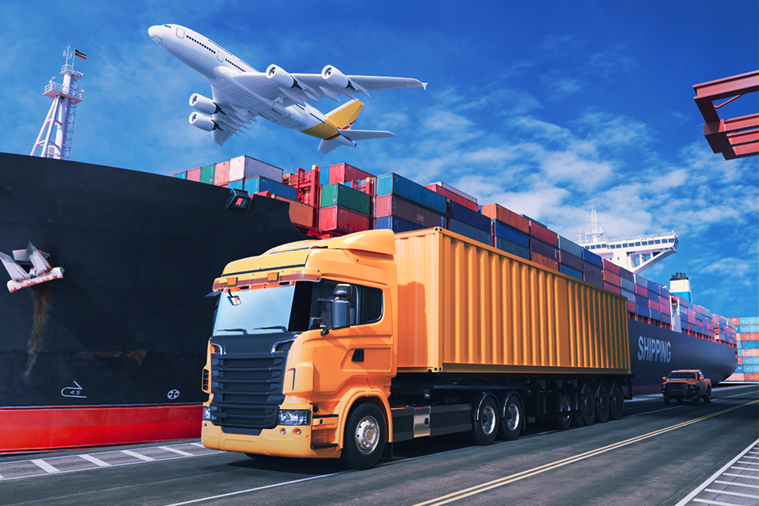If you want to be sure that your shipment reaches at brisbane customs brokers its destination smoothly, it’s crucial to understand the subtleties and rules of the international shipping sector, regardless of your level of experience.
In order to conduct business internationally, you must deal with a freight forwarder and a customs broker. While a customs broker handles customs-related issues including customs procedures, a freight forwarder manages the logistics and cargo aspects. To make the shipping process more easy, you can speak with these professionals.
Although both organisations are crucial to an exporter or importer, their functions are quite distinct, and it’s crucial to comprehend these distinctions in order to remove any obstacles from your workflow.
What is a customs broker?

A customs broker is a person or business that serves as a liaison between you, the trader, and the customs division of the government. They help other importers and exporters navigate customs procedures so that their cargo can be transported more easily.
Such a broker needs to be authorised and subject to control by US Customs and Border Protection. They must conduct their business in accordance with CBP regulations whether they are a private, public, nonprofit, partnership, or licenced corporation.
Customs brokers are responsible for what?
You can complete the necessary paperwork for the shipment of goods with the aid of a customs broker. If you are unsure of the rules or find the process to be difficult, contacting a customs broker will be the ideal solution. These professionals are experts in submitting the required paperwork and payments to the CBP.
The following are the main responsibilities of a customs broker:
- On your behalf, deal with officials from the government and the port authority.
- Investigate customs valuations, customs clearances, and entry procedures.
- The purpose of this service is to provide tariff classifications and consultations for international trade.
- The management of freight and other requirements of this nature.
In addition to all of this, a customs broker is an expert at figuring out the duty rates and related taxes for shipping goods. All businesses, especially those just dipping a toe into the market, benefit greatly from their support.
Traders’ Benefits from Customs Brokers
In addition to handling complex regulations and paperwork, a customs broker wears many hats. Customs brokers perform the following duties.
1) Presents your company in a positive light:-
When you ask a customs broker to help, they instantly take on the role of your company’s ambassador. To make sure a specific commerce transaction conforms with the law, they will manage all relevant regulations and operations.
Furthermore, they are familiar with your business objectives and keep you updated on the latest rules and regulations.
2) The payment process:
The government is billed for the duties that customs brokers paid on your behalf. The broker might also deduct it directly from your clearinghouse account, if you have one, since you must pay these duties within 10 days of the goods’ entry.
Overpaying customs duties will result in a refund request from the customs broker. An annual user fee and a status report are also charged.
3) Documentation management:
Customs brokers handle the paperwork and documents needed to accomplish your import or export. Five years after the entry date, they organise and store the transaction documents. In addition, copies of the current powers of attorney, revoked powers of attorney, and related correspondence are kept by them. They will also manage all the private papers needed for the customs check.
4) Providing supervision:
Customs brokers oversee all shipping-related activities, so you can speak with them about any problems you may be having with shipping clearance. Additionally, they will keep an eye on the products during the customs procedure to ensure that all rules are being followed. Some customs brokers will even assist you in managing your trade-related staff.
How does a freight forwarder work?
A person or business that handles the logistics of a cargo’s transportation is known as a freight forwarder. They manage everything pertaining to the actual physical transportation of goods and are an essential part of the supply chain.
These people aid in the efficient organisation of shipments so that they get to their destinations quickly. It goes without saying that they are highly versed in the ins and outs and compliance processes related to all kinds of transportation.
Between shippers and carriers, freight forwarders serve as a middleman. Even though they are not in charge of transporting your goods to another location, they are well aware of any potential transportation problems. You can prevent these issues by speaking with these people.
Freight forwarders are responsible for what?
Freight forwarders can be thought of as shipment travel agents. These experts have frequently assisted clients in avoiding delays in the delivery of their products.
Freight forwarders are trustworthy for assisting shippers or businesses find a reliable carrier for their goods in addition to being knowledgeable about the various laws governing shipping and transportation. Additionally, they can bargain for the lowest freight shipping costs.
Freight forwarders are the best choice if you don’t have enough human resources to handle shipping. The following are some of their most crucial duties: –
- To combine minor shipments to make larger ones.
- To construct and disassemble shipments in accordance with the specifications.
- To manage the paperwork and regulations necessary to export the goods on your behalf.
- To schedule and coordinate the booking of the freight transportation.
Additionally, they will manage the logistical requirements for shipping goods internationally. By using their services, you can receive the most affordable prices for your cargo shipment and have them handle all the burdens related to the formalities.
The Benefits of Freight Forwarding for Traders
The goods you ship are tracked by freight forwarders as they move from one location to another. They also help you with storage and planning the ideal cargo transportation strategy.
A freight forwarder has the following responsibilities:
1) Handling logistics:
Any freight forwarder’s principal duty is to maintain the supply chain processes and related logistics on your behalf. These individuals or businesses are specialists in handling port fees, freight costs, insurance prices, and fees for particular papers. They oversee all supply chain operations and offer advice for more effective transportation. They will, in essence, take care of all shipping-related processes.
2) Arrangements for transport:
Any freight forwarder will assist you in setting up the best mode of transportation in accordance with your needs. To dispatch your goods, they will assist you in choosing the shipping companies, airlines, rail, and road transportation systems.
Depending on your needs and the size of your business, several freight forwarding companies may be able to help. Additionally, they will communicate with the carrier and make arrangements on your behalf so you won’t have to worry. Depending on the quantity of the goods and the locations, the company will employ the best transportation system.
3) Managing paperwork:
Freight forwarders take care of logistics as well as the various types of paperwork needed for cargo transportation. The port, customs, booking documents, bills of lading, etc. are handled by them.
Additionally, freight forwarders handle your insurance paperwork, letters of credit, and other paperwork. They will constantly guide you throughout the entire shipping process.
Any effective import or export operation requires the assistance of freight forwarders and customs brokers. Although their jobs appear to be identical, there are some variances in the following areas:
- Among the responsibilities:-
The role of a freight forwarder is to act as a link between the export company wishing to convey products and the transport carrier. However, customs brokers act as a middleman between the business and the customs division.
Customs procedures are the only duties that a customs broker can do; in contrast, a freight forwarder can handle transportation needs as well as offer brokerage services.
- The nature of the business is as follows:
If you have never shipped internationally, a freight forwarder will organise the goods, take care of the majority of the logistics, and make sure everything is within your budget. Additionally, they offer assistance with storage and warehousing of items.
On the other hand, if you already have a sound logistics plan and are knowledgeable about international customs, a customs broker’s services will be more appropriate for you. In other words, a well-established professional company might choose to use such services.
- Efficient use of resources:-
You can work with freight forwarders to create the ideal logistics plan that fits your budget. By employing their extensive network of carriers, they will receive a price that is affordable.
By preventing customs duty complications and legal issues, customs brokers can also help you with your finances.

Conclusion
Your business needs will determine whether you choose a freight forwarder or a customs broker. To determine the services you require, you must thoroughly examine your logistics plan.
To formulate your strategy, you must have in-depth discussions with a freight forwarder or customs broker. Keep in mind that freight forwarders operate with both exporters and importers, while customs brokers concentrate on the import side of any export transaction.






